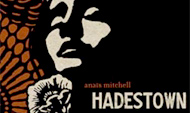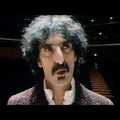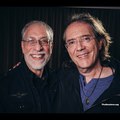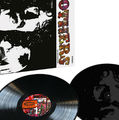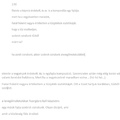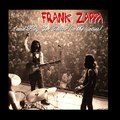"We share the same background"
- Péter Eötvös remembers Frank Zappa -
 I understand you first met Zappa in 1984 while recording pieces from The Perfect Stranger with conductor Boulez and the Ensemble Intercontemporain.
I understand you first met Zappa in 1984 while recording pieces from The Perfect Stranger with conductor Boulez and the Ensemble Intercontemporain.
Well, not quite. Although I was in Paris at the time I didn't take part in the project. I followed the event for a while but I didn't work with Zappa, it was only Boulez who conducted the Ensemble Intercontemporain.
So you only got to know Zappa in 1992, the year before his death?
Yes, during the Varese recordings.
Were you already familiar with his music at the time?
Of course. As I recall, I bought my first Zappa tape in the early '80s, way before the Paris production. I actually had two Zappa tapes that I would listen to daily. I found his music very important, and from then on I always knew exactly what he was up to.
Which albums were these exactly?
One was The Man From Utopia, I can't remember the name of the other. I went into a store in Florence and bought both of the tapes they had. Dangerous Kitchen, off the album The Man From Utopia, grew to become a basic piece for me, especially in later years, after I began working on operas. The technique that he uses in this particular song is very interesting: it's this half-sung, half-spoken performing method that's not quite like sprächgesang, but what makes it so interesting is that he accompanies it with an instrumental solo. I was very surprised to find out that the guitar part was recorded separately. As it seemed so synchronous, I was convinced that Zappa had sung and played at the same time. Nevertheless the technique itself, the idea of "the singing instrument" comes from Dangerous Kitchen.
How did you come up with the idea of buying Zappa's music?
I probably read about his music in a magazine and as I happened to see it, I bought it. Without any specific instruction or recommendation.
So you first met him personally in 1992. What was it like?
Fantastic. The orchestra Ensemble Modern had previously been in contact with Zappa and as a conductor I joined them for the Varese recordings. The relationship between the band and him was very relaxed and I had also become very close with them during previous projects. The recordings took place in Hollywood, in the Warner Brothers Studios which were booked for a week.
At that time Zappa was already very ill. An armchair was placed directly next to my conductors' podium so that he could sit right beside me during the rehearsals and recording sessions and listen to everything from the same spot. He closed his eyes and spoke only rarely: "Peter, there's something I don't understand." He wouldn't say what it was, only that there was something. As a matter of fact this is the best possible instruction because it comes from a listener who only notices that there's something on the album that he doesn't get. As long as he understood what was going on, everything was fine. He'd only speak up if there was a problem. Surely, you could always tell right away where the problem was. I noticed it right away and so did the orchestra. We fixed it and then went on. This is how it went, in fantastic harmony from dawn to dusk. The atmosphere was great. Lunch was brought to the studio, we had different guest audiences, there was a sofa in the back where they could sit down. Nicolas Slonimsky for example, Ionisation's first conductor back in the '30s. I think he was 99 when he came to listen to us. It was one of the fundamental pieces that inspired the whole recording, so this was truly a beautiful situation with Zappa, the first conductor, the orchestra and I... There was a TV crew filming his every move, during his last years practically 24/7.
What happened to the recorded material?
We listened to it after it was done, Zappa even made a remix, alone I think. The recordings still exist, I too have a copy for example you can listen to if you’d like. Except for the remix of Ionisation - the only part that wasn't finished - its quality is absolutely fantastic. So the album could be released, but Gail, Zappa's wife and legal successor refuses to give her consent. No one knows why, there is no logical explanation for it, and it's really too bad because in the meantime two other Varese albums have come out, and they're good in their own way, but due to Zappa's remix our work possesses a unique quality.

You also conducted Zappa pieces after his death, Greggary Peccary for example.
Yes, together with Ensemble Modern. This one I asked for in particular, I couldn't wait to do it and loved it tremendously. We even went on tour; the only reason I didn't cooperate in making the album was lack of time during the recordings. I feel somewhat sorry for this, although the spirit and quality of the album, recorded with my assistant at the time, Jonathan Stockhammer, resembles what we played on tour. I loved doing it and as a matter of fact will perform it again next May, with the French Radio's orchestra.
The piece was orchestrated by Ali Askin, a very close friend of Zappa's; they lived and worked together for months and months. I find Askin's orchestration excellent as well as completely authentic. The pieces arranged by Zappa himself give us a guideline as to how he imagined orchestration. His musical arrangements were outright fantastic, exemplary even for me. In the '80s during the Paris production I read quite a few scores of his. The most outstanding material was by far that of his own group, the rhythm and guitar section, arranged and noted with such complexity that makes it really outstanding. The technique he used for winds and strings is more common and well-known, but guitar and percussion material is rarely written in this manner. Technically and rhythmically this is much more complex than what we, european musicians are used to.
I was as enchanted from his musicians as I was from his colleagues. We talked and played a lot together and it was obvious: this was one fantastic band.
On the The Yellow Shark album Zappa instrumentations and Ali Askin remakes can be heard side by side. One cannot help but notice how far Zappa seems to have moved from rock music.
This is an interesting phenomenon I witness quite often, namely that rock musicians have a strong desire to be appreciated by their classical colleagues. It was the same in his case. I spent a good one and a half hours alone with him after the recordings and he showed me a piece of his, written for the synclavier. My impression was that he did this specifically so that I, coming from a different background, may understand where he feels at home - and also where he would like to be seen. These pieces of his are indeed very interesting, some of them have been orchestrated by Askin for the Ensemble Modern - but at the same time I find the need for a rock musician to be appreciated by another musical world somewhat peculiar. I would never come up with the idea since I find their knowledge completely satisfactory on its own right.
In an interview, Miles Davis named Bartók and Stockhausen as musicians he's interested in. Thus, Davis was also informed about the so-called other side, but he himself never tried working with, say, the London Symphony Orchestra for example. Zappa tried to, for him it was important to record 200 Motels with a London based grand orchestra (the Royal Philharmonic Orchestra) but he gave them tasks they didn't like. There was a heavy conflict between those two worlds because one did not approve of the other.
Zappa wasn't satisfied with the Paris musicians' precision either, although by european standards the precision of Intercontemporain is considered to be of outstanding quality. But compared to the musicians, percussionists and guitar players of the Zappa-combo - hohoho, it's impossible to compare the two. There you find a completely different kind of precision. Neither is better than the other: they are perfectly different types of rhythmical thinking.
Right from the beginning, Zappa placed himself between the two worlds and I see this as very positive. It bothers me that different worlds set boundaries between each other. But at the same time reality shows that these boundaries exist.
You even composed a musical piece for Zappa, Psalm 151.
This is a very personal piece for me and I believe that I managed to create technically very interesting percussion material and am very pleased that it is often played. By now it has become part of the curriculum, thanks to all the innovation, the previously unexperimented playing techniques for the big drums and the other instruments. This is the piece that brings me closest to Zappa, created with the desire to remember him. It isn't a gloomy piece, it's more of a tribute to him. The fact that it is being performed has to transmit strength. In a way it uses spiritual forces; I like to cite the example of letters, cut into skin right from the beginning, leaving their mark forever like a tattoo... It requires a kind of eruptive playing method which can differ from artist to artist. For me, the eruptivity is what counts, the explosions...
*
There's a cute film with Zappa, in which he's still very young and he's playing with a, I mean on a bicycle - this perfectly reflects the '60s' way of making music. Back then there wasn't a category for this, we all did it, I grew up the same way, I did the same thing, we played with bikes as well, drew strings - every way we managed to create sounds meant music to us. So we started off from a common '60s background and afterwards everyone followed their own path. I too suffer from the constant problem of crossing the line. I have always felt attracted to jazz and always receive a slap in the face for it, meaning that it's forbidden, forbidden, forbidden... And then you wonder why and try again.
Translated from Hungarian by Sarolta Krajcsi






